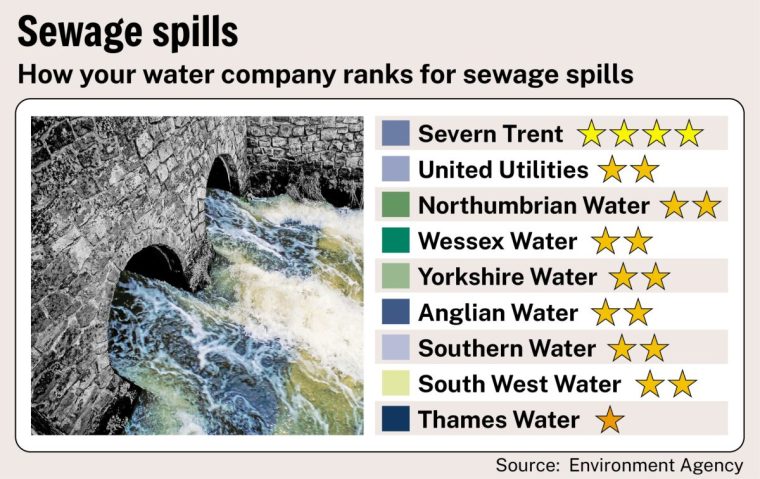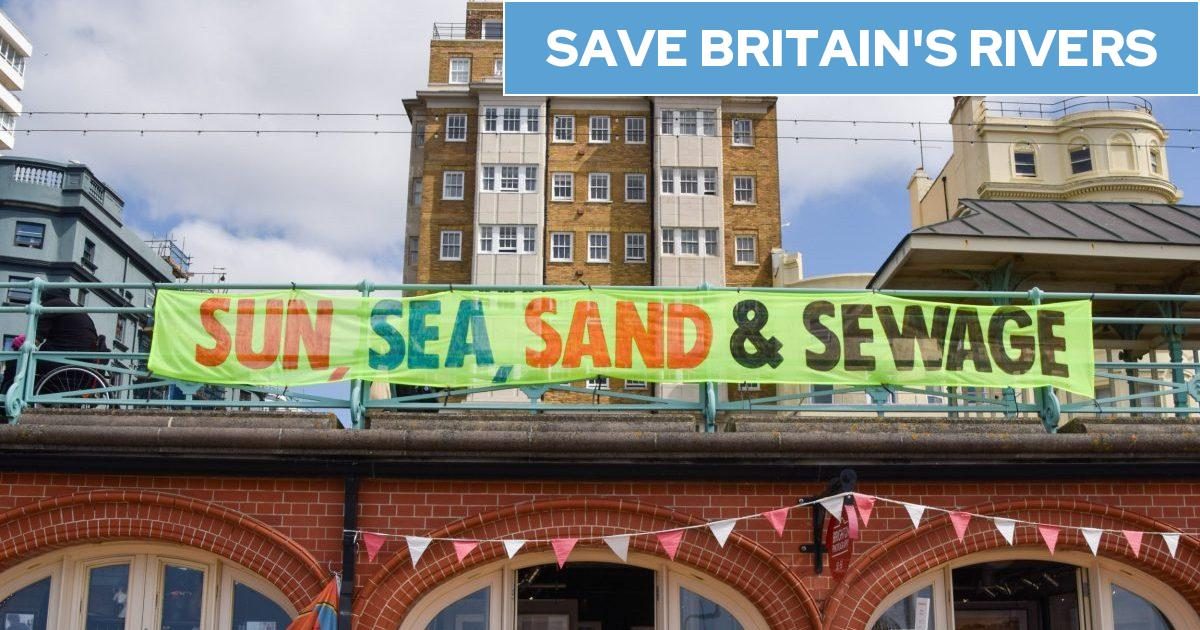Southern Water and Thames Water were two of the most heavily criticised water companies in the latest Environment Agency report
Water companies in England have recorded their worst environmental performance in over a decade as part of a scathing assessment published by the Environment Agency (EA).
All but one water company was rated as “requiring improvement” for its environmental performance in 2024, which means they received one or two stars out of four.
Collectively water companies received 19 out of a possible 36 stars, which is the lowest performance since the exercise began in 2011.
New FeatureIn ShortQuick Stories. Same trusted journalism.
Thames Water was the only company to receive one star and Severn Trent was the only one to receive four stars. All other companies received two stars.
Water companies are rated based on a number of factors, including pollution incidents, such as sewage and chemical spills, as well as the general compliance of their sewage treatment works.
The most serious pollution incidents increased by 60 per cent between 2023 and 2024, with three companies – Thames Water, Southern Water and Yorkshire Water – responsible for 81 per cent of these, the report said.
James Wallace, CEO of the campaign group River Action, said the figures were “deeply concerning” and the “overall picture remains one of systemic failure across much of the industry”.
 The Environmental Agency has released a report rating water company performance
The Environmental Agency has released a report rating water company performance
The EA said there were three main factors contributing to last year’s poor performance: wet weather, underinvestment in infrastructure and a boost in inspections.
Water UK, which represents the industry, agreed “the performance of some companies is not good enough”.
“These results cover the final year of a failed system before record levels of investment began to flow,” a spokesperson added.
Water companies have been given permission to increase customer bills in order to invest £104bn in their networks over the next five-years.
Some parts of England will see their bills rise by £43 per year, before inflation, to fund the upgrades required to reduce sewage spills.
It comes after the industry has been heavily criticised for pouring vast amounts of raw sewage into rivers, lakes and seas.
Earlier this year, the Government said the regulator Ofwat will be abolished and replaced by a new watchdog that will have a stronger focus on the environment.
The i Paper has been calling for a regulatory overhaul as part of its Save Britain’s Rivers campaign.
Responding to today’s assessment, Environment Secretary Emma Reynolds said: “Under this Government, water company inspections and criminal investigations have reached record levels, uncovering the true extent of the problem. We are taking decisive action to fix it, including new powers to ban unfair bonuses, and swift financial penalties for environmental offences.”
Some campaign groups would like to see the Government go further by taking failing water companies into “special administration”, which would mean bringing them into public ownership for a period of time.
Giles Bristow, chief executive at Surfers Against Sewage, said: “They fail, fail, and fail again. Today’s revelations of more water company mismanagement leads to one simple question: why doesn’t the Government throw the entire failing industry into special administration?
“As it tinkers with weak policies and throws token fines at polluters, let’s remember what this crisis is really about – people getting sick from the reckless pollution of their local beaches and rivers, all so overseas shareholders can grow richer from the bills we pay.”
Ministers have said it would cost around £100bn to pay off shareholders and renationalise water companies, but some academics argue the law would allow the Government to do this without compensating investors.
